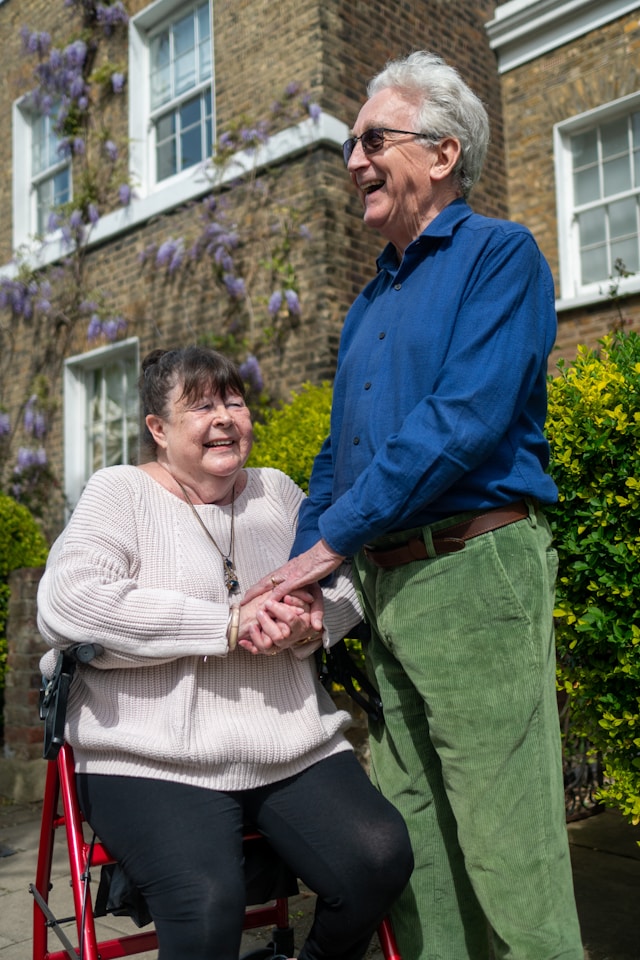The delivery of healthcare has changed as a result of remote patient monitoring (RPM), particularly for elderly patients and their carers. The top five benefits of RPM for elderly patients and caregivers are examined in this article. These points highlight RPM’s influence on healthcare accessibility, quality, and support for senior patients and their caregivers in the current digital era by examining all of its many benefits.
1. Global Healthcare Accessibility
By removing geographic obstacles and enhancing healthcare equality, the use of remote patient monitoring technology broadens older patients’ access to healthcare services worldwide. Furthermore, older individuals no longer need to go to medical institutions in order to obtain prompt medical attention and monitoring thanks to remote patient monitoring (RPM). By tackling inequities in care access among senior citizens living in underserved or rural areas, this increased access to healthcare services supports equality in healthcare delivery. Healthcare practitioners may ensure that elders receive the required medical treatment and can remotely monitor their health state by utilizing RPM technology. This can lead to greater overall well-being and better health results. In the end, RPM improves older individuals’ access to healthcare services worldwide, enabling them to receive necessary medical support without geographical constraints.
2. Timely Interventions
By decreasing the chance of unfavorable occurrences and consequences, remote patient monitoring allows healthcare practitioners to take immediate action in the event that the patient’s baseline health condition is altered. Additionally, healthcare practitioners can get instant attention and action by having remote patient monitoring (RPM) devices immediately alert them to any unexpected changes or patterns in the patient’s health data. By managing healthcare proactively, negative occurrences or complications can be avoided, and health conditions can be prevented from worsening, which ultimately improves patient outcomes. RPM helps early health issue diagnosis and management by enabling quick actions, which lowers the risk of ER visits or hospital stays for senior patients. In the end, RPM improves the general standard of care by allowing medical professionals to react promptly to modifications in the patient’s health status, promoting better health outcomes and patient satisfaction.
3. Reduced Caregiver Burden
Remote patient monitoring eases the stress on caregivers by offering round-the-clock support and monitoring, enabling them to deliver better care without feeling overburdened. Additionally, caregivers can be notified by remote patient monitoring (RPM) systems of any alarming changes in the patient’s health state, allowing them to take immediate action or seek medical attention as necessary. By proactively managing healthcare, caregivers’ well-being and resilience are enhanced, and their frequent sources of stress and worry are reduced. RPM improves the whole caring experience by helping caregivers fulfill their responsibilities, which creates a more encouraging and long-lasting care environment for senior citizens.
4. Enhanced Communication with Healthcare Providers
A game-changing tool that promotes better communication between older patients, caregivers, and healthcare practitioners is remote patient monitoring or RPM. Without requiring in-person visits, RPM facilitates smooth remote consultations, guaranteeing that senior patients may get prompt medical advice and interventions. Healthcare professionals may manage medication adherence, remotely monitor vital signs, and evaluate general health conditions in real-time by utilizing RPM devices and platforms. The regular updates and proactive actions made possible by this constant flow of health data improve the standard of care provided to senior patients. Moreover, the RPM meaning extends beyond simple data collection; it encompasses the collaborative effort between patients, caregivers, and healthcare providers to manage chronic conditions and promote overall well-being. Elderly patients and their carers might experience a greater sense of connectedness to their healthcare team, knowing that they have access to support and guidance whenever needed.
5. Customized Care Plans
By adjusting care plans to each senior patient’s unique needs through remote patient monitoring, healthcare professionals may guarantee individualized and successful treatment regimens. In addition, real-time data on a patient’s health state is given to healthcare personnel via remote patient monitoring (RPM) systems, facilitating continuous evaluation and necessary modifications to care plans. By using a customized approach to care, medical professionals may better meet the particular needs and preferences of senior citizens, enhancing overall health and treatment results. RPM promotes a cooperative and patient-centered approach to healthcare delivery by incorporating patient preferences and input into care planning, which raises patient involvement and satisfaction. In the end, RPM-supported personalized care plans improve senior patients’ health and quality of life by enabling them to have longer, healthier lives.
Conclusion:
For senior patients and their carers, remote patient monitoring provides a host of advantages, such as ongoing health monitoring, better chronic illness management, more freedom, higher safety, and personalized care plans. Remote patient monitoring will become increasingly important as technology develops to assist senior adults’ health and well-being worldwide.

